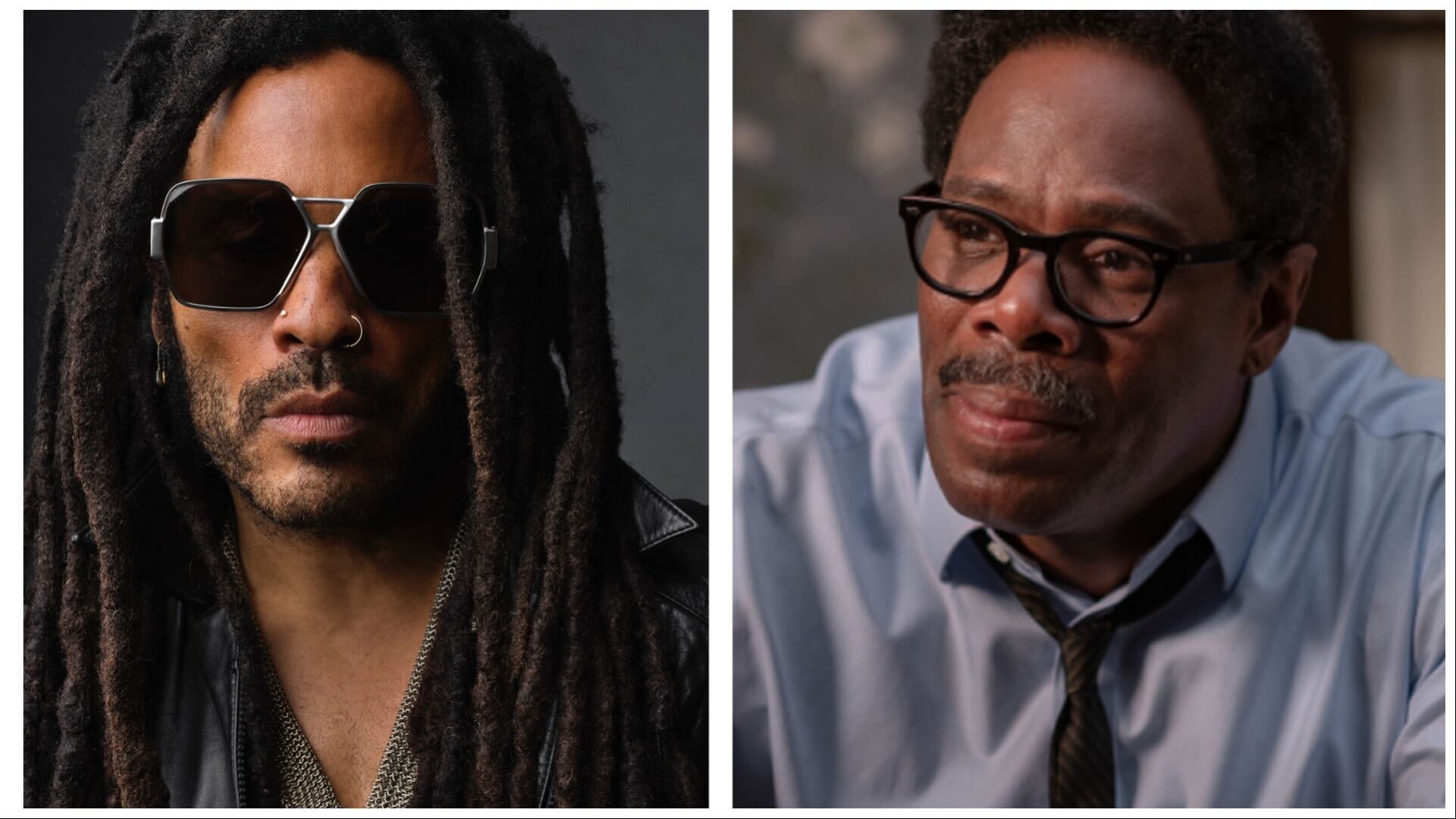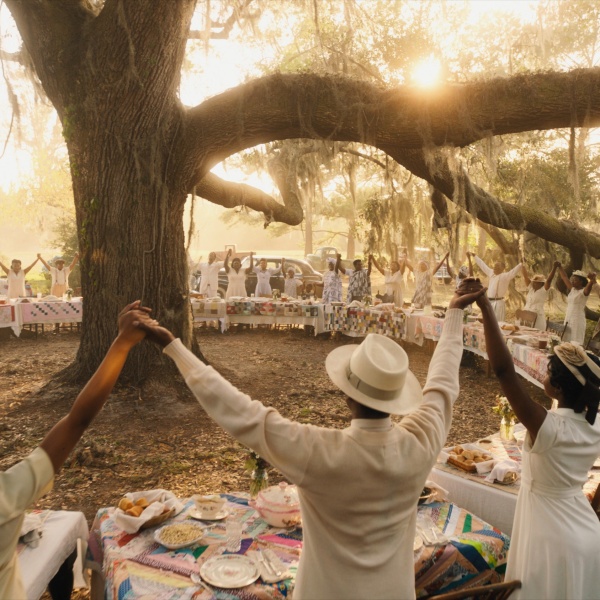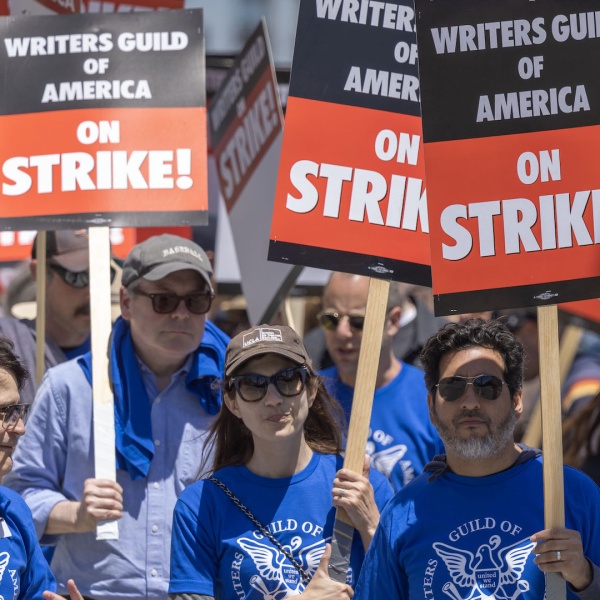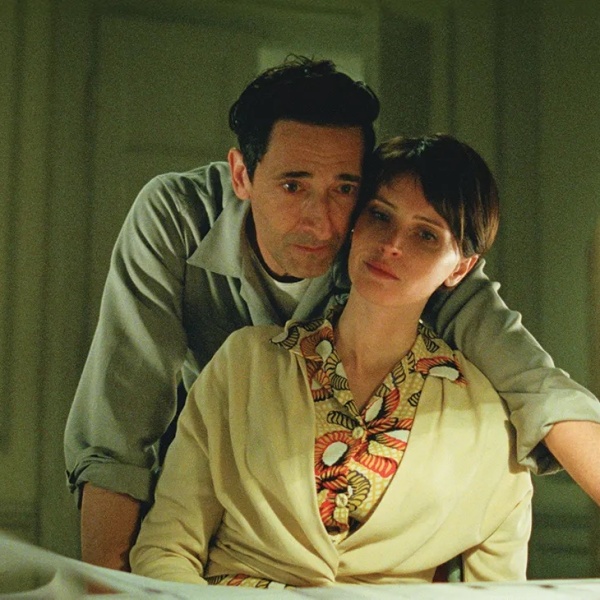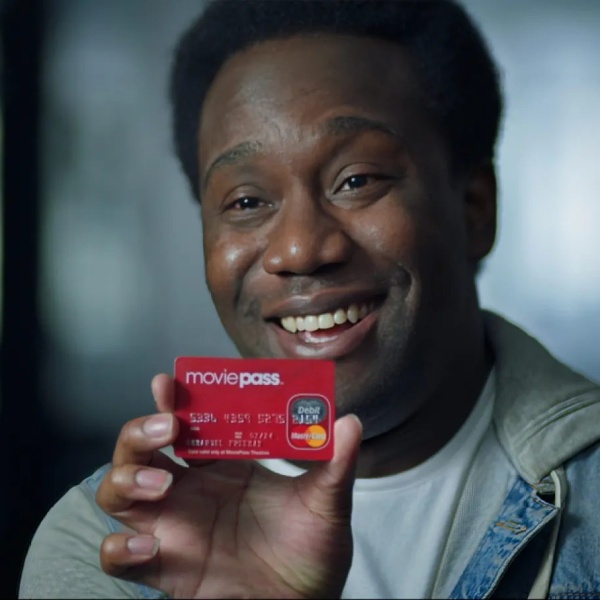
After Lenny Kravitz watched an early cut of “Rustin,” it wasn’t difficult for him to determine whether or not he’s accept the challenge of writing and performing an original song for the new Netflix film. After watching the movie — which features a tour de force performance from Colman Domingo as the forgotten Black queer icon of the Civil Rights Movement, who was chief in organizing the historic March on Washington in 1963 — Kravitz told IndieWire, “The first thing I felt was, ‘My mother would want me to do this.’”
Speaking to IndieWire over Zoom, the Grammy-winning singer-songwriter admitted he had not heard of the film’s namesake, “which immediately showed me that there was a problem, because I grew up in a family that was very active in the Civil Rights Movement. My mother and her friends and all of those folks in the ’60s, they were in all that.”
Having gotten her start in the legendary Negro Ensemble Company, his mother, “The Jeffersons” actress Roxie Roker, was a peer to pivotal Black artists like Maya Angelou, Nikki Giovanni, Miles Davis, Ella Fitzgerald, and Duke Ellington, meaning Kravitz grew up surrounded by those that “were using their art, in so many cases, to push the cause,” he said. So when the film ended, and it was time to make a decision to go down what would become the “Road to Freedom,” and choose to collaborate with the “Rustin” team, Kravitz said, “I could feel the spirit of my mother. I could feel the spirit of my family and just folks in general that were in that movement. I felt the spirit of Bayard Rustin. Colman Domingo embodied that character with such grace and humility and strength and vulnerability and passion. So, I was like, ‘Yeah, I’m on board.’”
But there is a reason we have not really seen the current Golden Globe and Critics Choice Award nominee make original music for a film project to this degree. “They want me to write the song, and it’s due yesterday, as it always is. And I’m not used to working in that manner because I make music by myself primarily,” said Kravitz, going into detail on how the “Rustin” assignment came up against his usual creative process. “I work on my schedule. I turn albums in when I turn them in and I’m ready. So, now we have to get this done … [but] I’m not an artist that normally sits down to write. I’m an antenna, so I like to pick up what it is that I’m meant to receive. So, therefore, I’m not forcing it.”
The first calls he made were to director George C. Wolfe, who suggested he incorporate trombone into the piece, and Domingo, who said, “The only thing that comes to mind is ‘It’s about the work.’” That ended up being a lyric that made it into the chorus. “‘We’re on the road to freedom until the war is won. We’re on the road to freedom, there’s so much work to be done.’ Because this road is continuous, we’re still on this road,” said Kravitz. “I had that and that was it, and the clock was ticking.”
It took two days of solitude inside his Paris home, praying for inspiration, thinking, “‘God, just please give it to me. Just give it to me. This is not about me.’ And I felt something. I sat down at the piano, put my hand down, hit that first chord, and it came,” said the musician. “‘We are here to make the dream come true…’ Dr. Martin Luther King’s and all of our folks’ dream, we’re here to make it come true. ‘And together, that’s what we’ll do,’ and on and on and on.”
Finally presenting his first version of “Road to Freedom” to Wolfe, someone he’d known since he was 17 years old, having worked on a play together, the initial response was “‘Well, you know…’ He took me through it,” said Kravitz. “‘I understand what you’re saying and what you’re saying is correct, but I’m not so fond of this word, or that word,’ or ‘I know that that phrase says what it says, but I want it said in a different way.’ So, I’m like, ‘Oh, my God. OK.’ And this went on, dude, for three weeks.”
Being an actor himself — and in multiple SAG Award-nominated ensembles — Kravitz had an appreciation for Wolfe’s bold, hands-on approach. “[As a singer-songwriter] I’m not usually listening to folks and what they have to say, but it was wonderful because it’s his film, it’s his vision, and I’m here to complement that. So, after you watch the entire film, whatever happens when the screen goes black has to embody exactly the feeling it is that George Wolfe wants us to feel. I had to work within that framework,” Kravitz said. “So, finally, we got it to where every word was exactly fitting to George and for George.”
But even then, the “Rustin” director, who has helmed Tony-winning Broadway musicals like “Bring in ‘da Noise, Bring in ‘da Funk,” had sonic notes, like how Kravitz should cut down on the reverb when his vocals first come in.

“He says, ‘We have to start in this intimate place, and then we get to the rally, then we can soar high and fly up and do all that.’ So, he had really specific ears,” said the singer. “Although I’m writing and producing and playing, I still have to be accountable to the project. That’s what it was. And, hey, man, life is about collaborating. I look forward to doing more of it.”
Kravitz saw the gospel choir coming in at the end of “Road to Freedom” as a necessity, and was thrilled to use Wolfe’s initial note as an opportunity to invite Trombone Shorty to work on the track, a now internationally recognized musician whose first world tour happened to be as part of his band. “All the solo parts, he just does on the spot, first takes,” said Kravitz. “[His] intro sets the whole tone.”
Recently, Kravitz went on his Netflix account to try and watch “Rustin” for pleasure, holding off on the impulse to go straight to the end to double check how his song works with the credits, “And it was beautiful. And I knew that George was right about the reverb and it all worked out,” he said with a laugh. “So, look, at the end of the day, I’m so proud and honored to be a part of this. You can write a song for a lot of things, but for me, I’ve spent 35 years of my career singing about love and God, and humanity, and inclusion, and life. That’s what I do. And so, this fits right in with any of the anthems that I’ve written — ‘Let Love Rule,’ ‘Believe,’ ‘Here to Love’ — all these songs, ‘Road to Freedom’ fits right in.”
As well as the song fits with “Rustin,” the Best Original Song contender has become very personal to him. “I grew up going to church with my grandmother and my grandfather and my mother, and listening to gospel music and singing in choirs, so this is me. This is me. Gospel, soul, R&B combination with a little bit of rock and roll,” said Kravitz. “That’s what ‘Road to Freedom’ is.”
